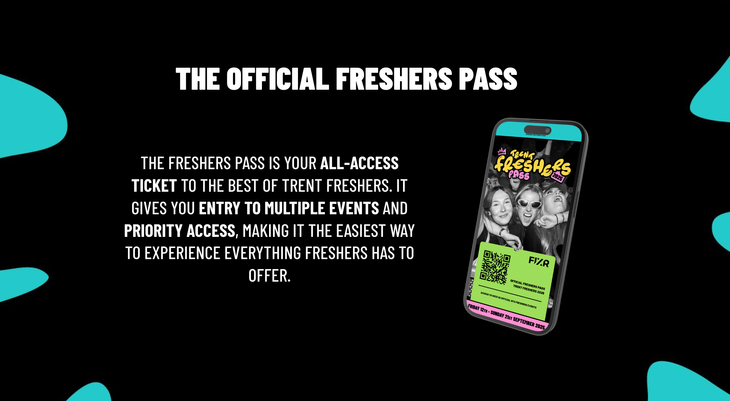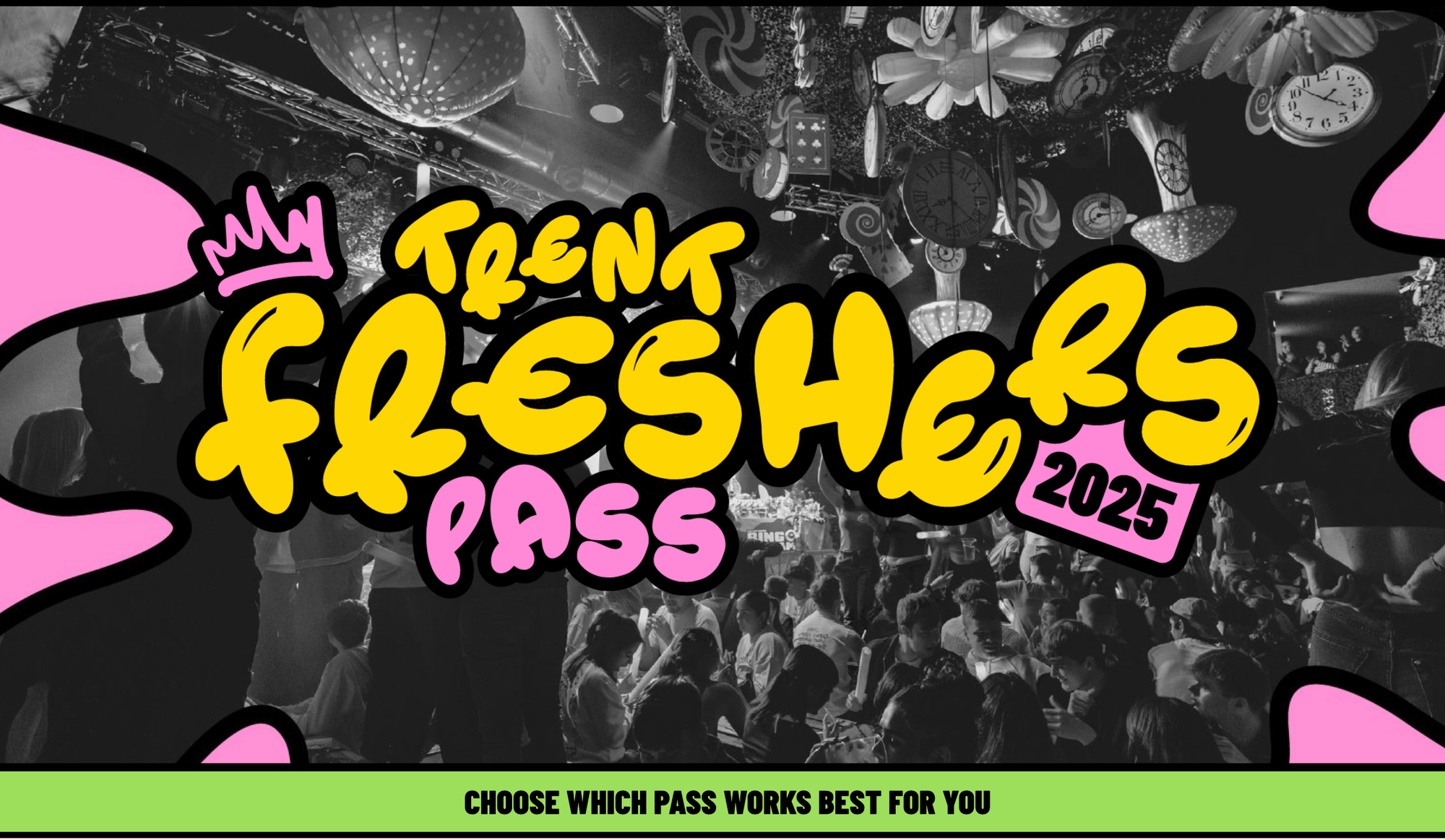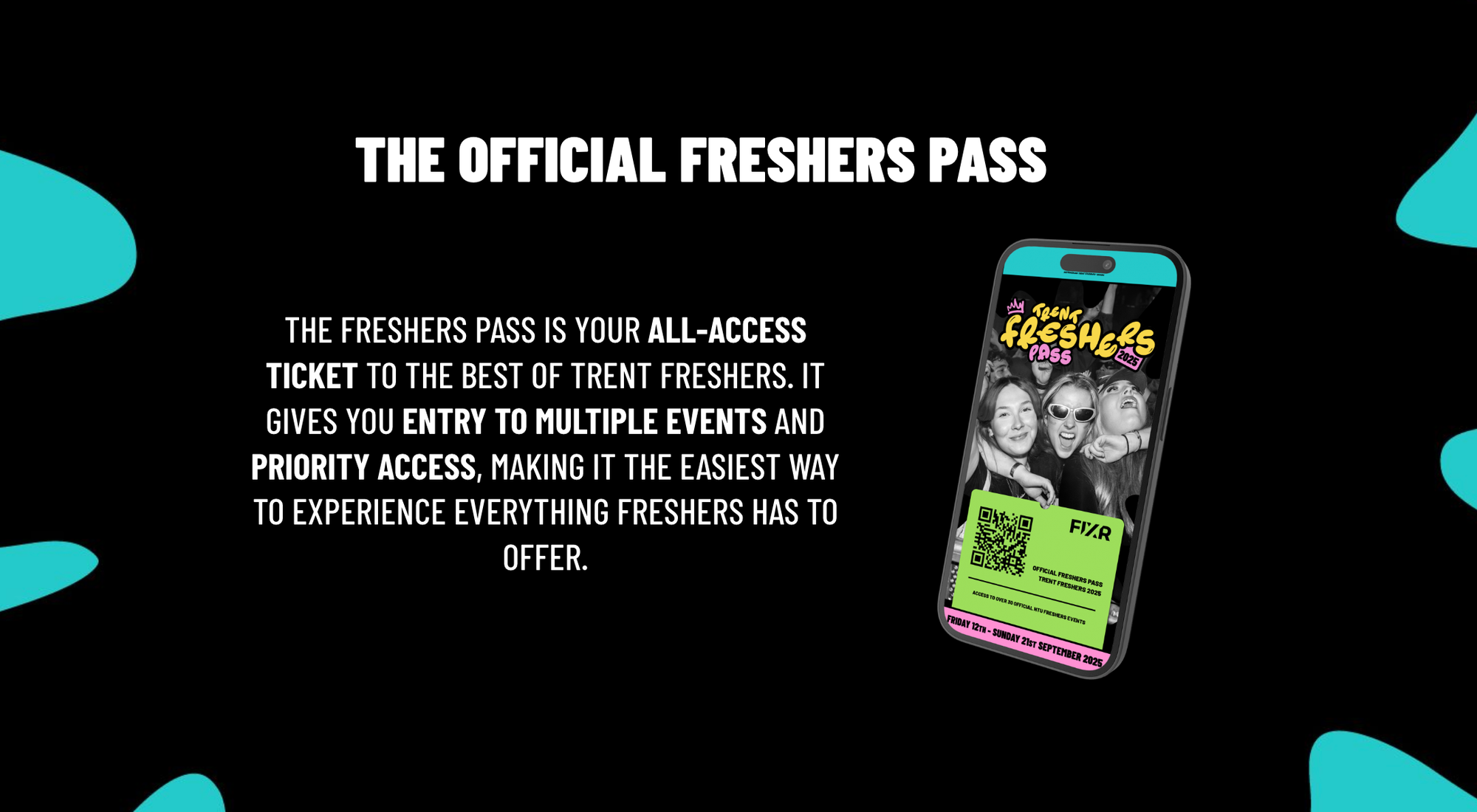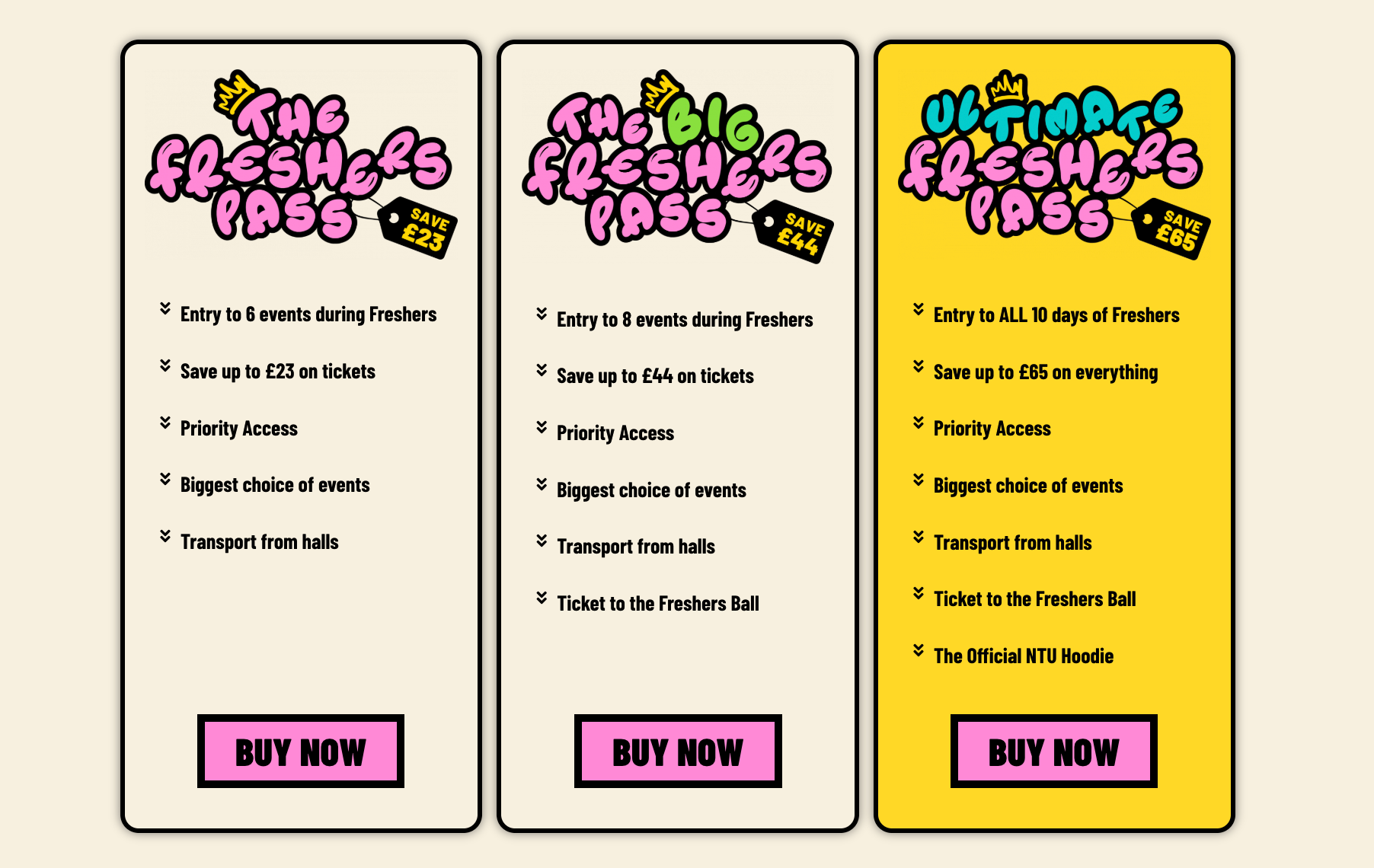300% more events, thousands more ticket sales: How FIXR helped NTSU revolutionise their Freshers Week

As the heart of student life at one of the UK's largest universities, Nottingham Trent Students' Union have been organising exciting events for decades – across three campuses, and in venues throughout the city.
But until relatively recently, managing these events meant manual processes, queues at the box office, and physical tickets – or for Freshers Week, physical wristbands.
Since joining FIXR, all of that has changed. And using a digital Freshers Pass has yielded remarkable results.
We spoke with Todd Heffernan from NTSU about how they've been able to grow their event offering, increase ticket sales, and provide a more diverse offering to meet the evolving needs of their student population.
NTSU needed a smarter solution than physical wristbands. One that allowed them to streamline operations and improve the Freshers Week experience for their students.
FIXR built a Freshers Pass, which lets students buy a 'digital wristband' and select which events they are attending.
Since using the Freshers Pass, NTSU have increased the volume of events from 10 to 42 in three years – more than 4x growth!
Between 2015 and 2019, physical wristband sales were falling every year. Since joining FIXR, pass sales have increased YoY.
The introduction of Passes has increased total ticket sales by thousands (including advanced and on-the-door sales) each year.
Read the interview with Todd below to learn more about the evolution of NTSU's ticketing, the growth and diversification of their Freshers Week events, and the impact of FIXR's features on helping them achieve consistent success.
Head here for more info about Trent Freshers 2025 and to purchase the Official Freshers pass.
What type of events do you run?
We run around 500 events a year, with probably 75% taking place in our own venues and bars.
Our programme ranges from small quiz nights to smaller ticketed events like comedy and bingo nights, which draw about 200–250 attendees.
Then we have larger, club-night-style events, which can go up to 2,500+ tickets if we're really busy and have turnover on the night. I think the most tickets we’ve ever sold for a single event is about 2,700.
When did you start using FIXR?
We’ve used FIXR for all our online ticketing for nearly three years now; we started the relationship in the summer of 2022.
A bit of context on pre-FIXR ticketing: our website hosting provider is widely used across the Students’ Union sector, with a backend service that includes an online shop, plus events and ticketing services.
It lacks the features you’d find in typical third-party ticketing providers, so moving ticketing away from them was a no-brainer. Especially post-COVID, when everything became digitised overnight.
We had been dabbling before the lockdown, trying to move away from physical tickets. Historically, we had a physical box office inside our 2,500-cap nightclub at the city campus. That was open 9-5, Monday to Friday.
Wild to think about now – there's just no need for that today. But back then, it was used daily, selling physical tickets to almost every event.
For some big end-of-term parties, students would literally camp out overnight for tickets. That was 2019. Then it all disappeared overnight.
We were already trying to move away from that model – it wasn’t good having students camp outside all night!

How has using FIXR and the new pass changed how you manage your Freshers Week events?
We used to have a physical wristband that got you into every Freshers’ event.
We’d run ten nights of events, and on each of those nights, the wristband would get you into one, two, or even three venues.
For example, 'Trent Army' might be on Sunday night, running across three venues simultaneously. That way, we could host 6,000 students across three venues for the same event.
But there was no way to offer any choice.
So when we had to digitise the wristband, once the university stopped running physical enrolment, it forced us to rethink the product. We realised there was a huge opportunity to give students more choice.
What if they could buy one product (like a wristband) and redeem it for various events? That’s when we started talking to FIXR about our idea for a solution.
FIXR listened and said they could do it. That was the first Freshers Pass.
The programme went from being 10 repeated events to a more diverse offering.
Instead of three “Trent Army” events in three venues on the same night, we ran them across different nights, and offered alternative events like cocktail nights or outdoor cinema.
Kudos to FIXR. They didn’t have to build that, and I doubt many other ticketing providers would have. There was no guarantee they could reuse the product for anyone else. It was a bespoke solution.
What impact has the pass had on your sales?
Being able to sell a single product that students can redeem against any number of events has been incredibly successful.
In 2015, we sold 3500 Freshers’ wristbands. Then 3200 in 2016, 2800 in 2017, 2500 in 2018, and 2000 in 2019.
It was clearly a product in decline. Students were buying fewer physical packages, even though individual ticket sales and overall attendance remained strong.
Over the last three years using the Freshers Pass, our package sales have increased year-on-year.
We haven’t hit the 2015 peak again, but to see growth in package sales again is surprising and entirely down to the Freshers Pass.

How many more events have you been able to run?
In the first year with FIXR, we had around 15 events. Last year, we ran 42 events across ten days.
It has allowed us to sell 2,000-3,000 extra tickets each time because the programme is so much more varied.
As trends shift, away from drinking alcohol and late nights, we’ve been able to introduce a whole range of activities that better suit student interests.
The Freshers Pass has not only boosted our package sales but also increased total Freshers’ event entries by thousands year-on-year.
Previously, the physical Freshers Wristband product appealed primarily to students interested in big club nights and large-scale events.
With the introduction of the pass, we’ve been able to include a huge variety of event styles that have helped attract a wider audience.
The real power of the pass is being able to offer unlimited choice; there's really no cap on the number of events that we can offer.
Are you now more able to identify popular events in advance and adjust the schedule?
Yeah, exactly. This past year and the year before, for some events that sold out early, we’ve been able to put on a second, third, or even fourth version of the same event at different points in the week.
Putting on multiple iterations of the same branded event has worked well. Once one version sells out, we just launch the next.
With a physical wristband, someone might go to the first couple of nights but then start skipping events. What impact has the Freshers Pass had on predicting attendance across the week?
We can very closely predict drop-offs and where fatigue starts to set in during the week. And because we can see that year-on-year in the data, we now choose to put different types of events on different nights.
We’ve been able to scale up or down and know well in advance what that drop-off looks like for different event styles.
Three years ago, we ran large-scale club nights (2,000+ capacity) every night, from Friday through to Friday. Friday and Saturday were big sellers, easy wins. Monday always dipped, but we’d still run a club night.
Now, because we saw such drop-off midweek, we’ve replaced some of those club nights with early evening entertainment events that finish at midnight. They attract just as many people but don’t demand a 3am finish.
We can also offer smaller club nights for the DnB ravers who maybe haven’t yet been catered to by that point with the bigger club nights.

Do you have a sense of how many more sold-out shows that’s led to?
I couldn’t tell you the exact number off the top of my head, but the fact we were able to run 42 different events at our most recent Freshers Week is a good indication that things are going well.
We wouldn't be adding iterations or more styles in that same 10-day period if we weren’t selling out previously!
We’ve been able to sell out various types of events, add more events, and grow the programme.
Ten years ago, it was impossible to do more than 10 event styles in 10 days.
That was our limit. This year, I think we’ll end up doing more than 42 again. It’s kind of crazy to think about that.
What impact has it had on relationships with venues?
Relationships with our partner venues are great. It’s much easier to prepare and let others know what’s expected. We also now have historical data to back up our predictions.
The trends feature is my best friend on the dashboard.
I love being able to look year-on-year for certain events. Because many of our big club night brands are the same, it’s easy to say, “48 hours before, we sold X. Based on previous years, we’ll likely sell out. Or not, unless we do a bit more promotion.”
That sort of insight has been super helpful. The first year we used FIXR, it felt a bit like going in blind. But now, there’s so much more data to share with partner venues. It makes those conversations easier.
If we say something will happen, it usually does – because we can predict it, thanks to historical data and the way we sell tickets.
Head here for more info about Trent Freshers 2025 and to purchase the Official Freshers pass.
Or, get in touch to discover how FIXR could help your ticketing and event management

